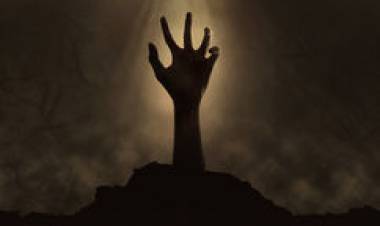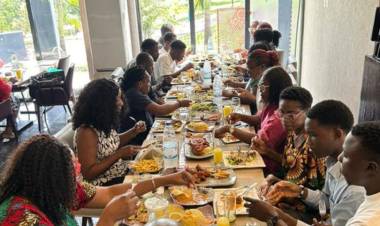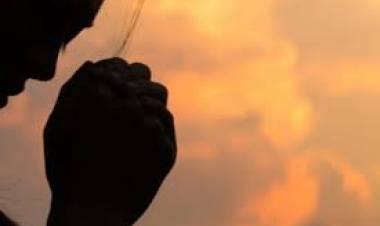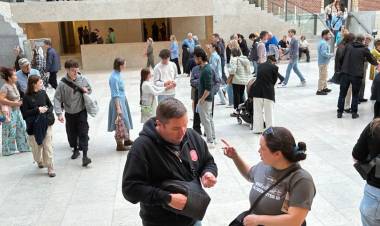Bathsheba: The Jewish Rabbis Perspective Part 1
Midrash: A type of non-halakhic literary activity of the Rabbis for interpreting non-legal material according to special principles of interpretation (hermeneutical rules).)
The midrash portrays Bathsheba as a modest woman who carefully observed the laws of family purity but who found herself, without any conscious action on her part, in an adulterous affair with the king. The Rabbis are concerned with the causes and harsh consequences of David’s sin but completely disregard Bathsheba’s desires or thoughts.
Many dicta present David’s grief at the sin he committed and the heavy price it exacted. Bathsheba is not punished, nor does she ask for forgiveness, thus indicating her guiltlessness in the eyes of the Rabbis. The midrashim repeatedly emphasise that God forgave David for his sin and thereby endorsed his marriage to Bathsheba.
According to another homiletical approach, Bathsheba had been designated as David’s wife during the six days of Creation; the fact that her son Solomon continued the royal dynasty of the Davidic line cleared David and Bathsheba of any reproach. The midrash also examines Bathsheba’s role as the mother of Solomon, the heir to the throne.
Her standing did not diminish after David’s death, and she continued to educate her son, reproaching him for his unseemly behaviour when he drank to excess and married the daughter of Pharaoh. The rabbis apply to Bathsheba the verse from the “Woman of Valor” poem (Prov. 31:22): “She makes covers for herself; her clothing is linen and purple,” since she bore Solomon, who was dressed in linen and purple and ruled from one end of the world to the other (Midrash Mishlei 31:22). Bathsheba, A Fitting Wife for David According to the Rabbis.
Ecclesiastes 4:9 describes the marriage of David and Bathsheba: “Two are better than one.” Bathsheba was a fitting wife for David and had been thus designated already in the week of Creation, but she came to him through suffering [resulting from sin]. Another approach concurs that she had been appointed for David during the six days of Creation, but “he enjoyed her as an unripe fruit,” that is, he married her before the proper time when the fruit [the fig] was still unripe. He rather should have waited until she was ready for him after the death of Uriah (BT Sanhedrin 107a). This exposition is based on wordplay since, in the Rabbinic period, bat sheva was the name of an especially fine type of fig (see Mishnah Ma’aserot 2:8). The Sin of David and Bathsheba.
The Tosefta establishes that the Biblical account of the sin of David and Bathsheba is one of the passages that are not read in the public readings from the Torah and the Prophets (haftarot), nor are they rendered into the vernacular [i.e., Aramaic] before the public. Notwithstanding this, the teacher may read these verses in the usual manner in which he teaches verses of Scripture (T. Megillah 3:38).
The Tosefta apparently finds value in teaching the story, from which we can learn something, but deems a public airing unsuitable; it should rather be studied in the more intimate context of a teacher’s lessons to his pupils. The midrash asserts that David and Bathsheba's affair was a trial that David brought upon himself, and he failed. David asked: “Master of the Universe! Why is it said [in prayer]: ‘the God of Abraham, the God of Isaac, and the God of Jacob,’ but not ‘the God of David’?” God replied: “I put the Patriarchs to the test, and they withstood My trials, but I did not put you to the test” (BT Sanhedrin 107a–b). According to another tradition, David asks God: “Why is it said [in prayer] ‘the shield of Abraham,’ and not ‘the shield of David’?” To which God replied: “I put Abraham to ten tests, but I did not try you” (Midrash Tehillim [ed. Buber], 18:25). David said to Him: “Master of the Universe! ‘Probe me, O Lord, and try me’ (Ps. 26:2).” God responded: “I will try you, and I will grant you a boon that I did not afford them. I did not inform the Patriarchs with what I would try them, but you I tell that I will try you with a sexual matter.” When David heard how he would sin, he changed his night couch to a day couch (i.e., he engaged in intercourse during the day so that he would be sated and not have sinful thoughts about any woman). It is therefore said (II Sam. 11:2): “Late one afternoon, David rose from his couch,” for it was then that he arose from intercourse. The Rabbis note that when he acted so, he forgot one fact: man has a small organ that, when fed, becomes hungry [and desires more], but when starved, is satisfied (BT Sanhedrin 107a). His lying with his wives that day was of no avail, so when he saw Bathsheba in the afternoon, he nevertheless lusted after her. The midrash portrays Bathsheba as a modest woman and relates how she washed her hair under a hidden bucket.
David was walking about on the roof when Satan came and appeared to him as a bird. David shot an arrow at the bird, but the bird flew away, and the arrow hit the bucket and broke it. Thus, Bathsheba was revealed to David as she bathed (BT Sanhedrin 107a). This exegesis is most likely based on Ps. 11:1–2 [attributed to David], which describes how the upright fall under the arrows of the wicked: “How can you say to me, ‘Take to the hills like a bird! For see, the wicked bend the bow, they set their arrow on the string to shoot from the shadows at the upright.’”
In the midrashic tale, Satan embodies the wicked one, whose arrows ensnare the upright David and cause him to sin. An arrow striking home is a recurring motif in world literature, used to depict sudden and uncontrollable falling in love. Thus, David hits the bucket behind which Bathsheba is concealed, symbolising his unbridled fall in love with her. His inability to hit his initial target (the bird) represents his inability to withstand the trial he undertook. The Rabbis assert that God punished David for the Bathsheba episode. David sealed his own fate when he said (II Sam. 12:6): “He shall pay for the lamb four times over,” and was penalised by the death of four of his children: the first child born to Bathsheba, Amnon, Tamar [who was raped], and Absalom. David also suffered personally as part of this divine recompense: he was afflicted with leprosy for six months, the Sanhedrin separated from him, and the Shekinah (Divine Presence) departed from him (BT Yoma 22b).
The midrash presents an event that preceded the David and Bathsheba episode and reveals the former’s weakness. When Abigail, wife of Nabal the Carmelite, came to David clandestinely to plead for the lives of her family (I Sam. 25), David fell thrall to her beauty and could not overcome his lust despite her being a married woman. Abigail took a resolute stand against David’s advances, saving him from sin. Abigail told him (v. 31): “Do not let this be a cause of stumbling. When she said “this,” she prophetically foretold that he would stumble in another episode, that of Bathsheba (BT Megillah 14a-b). David had not yet ascended the throne in the encounter with Abigail; he was a man without possessions and was in flight from Saul, in danger of his life. Abigail was a woman of high station and power and, therefore, could resist him. In the David and Bathsheba episode, however, the balance of power was reversed. David was the all-powerful monarch, while Bathsheba was the wife of one of his subordinates and hence incapable of offering any resistance.
In contrast with the prevalent view of David as sinning with Bathsheba, a contrary approach maintains that David was blameless and that whoever claims that he sinned is in error. The Talmud relates that Rabbi Judah the Prince, who was descended from the Davidic line, sought to defend David: he argued that when Nathan the prophet reproached David, telling him (II Sam. 12:9): “Why then have you flouted the command of the Lord and done what displeases Him?”, he chastised him about something that he wanted to do, but did not commit. (David might have intended to sin, but his actions did not exceed the bounds of the halakhah). David did not engage in adultery because it was customary during the monarchy of the Davidic line for a man to write a conditional writ of divorce for his wife when he set out for war, which stipulated that if he were to die in battle, his wife would be retroactively divorced from the time of his departure for the battlefield. This practice was meant to prevent women from becoming agunot (“chained” women barred from remarrying). Since Uriah had prepared such a writ of divorce for Bathsheba and he was killed in the fighting, Bathsheba was no longer a married woman when David had sexual relations with her.
Furthermore, since Bathsheba was then unmarried, this act of intercourse constituted an act of marriage. Despite its unseemly nature, the act did not formally constitute a transgression. Nor did David commit any crime in the death of Uriah since the latter was rebellious. He did not obey David when the king ordered him to go down to his house but rather refused, arguing (II Sam. 11:11): “My master Joab and Your Majesty’s men are camped in the open,” and the mastery of another is not to be mentioned before the king. Uriah was deemed rebellious against David, a crime punishable by death, even without being tried before the Sanhedrin, as was the accepted procedure (BT Shabbat 56a). The Talmud presents this attempt to exonerate David as tendentious and seemingly criticises the attempt to find him completely blameless, just as it shows that this advocacy comes from the circles of David’s descendants, who occupy the position of Nasi (Patriarch).
The Request for Pardon:
The midrashim portrays David’s great distress after he acknowledges his sin, which is expressed in the Psalms that he composed. David says (Ps. 17:3): “You have visited me at night, probed my mind, You have tested me and found nothing amiss [zamoti]; I determined that my mouth should not transgress”—if only a muzzle [zamam] had been put to my mouth so that I would not request a trial and then fail it (BT Sanhedrin 107a).
David asks for forgiveness from God, saying: “Master of the Universe! ‘Who can be aware of errors?’ [Ps. 19:13; i.e., exculpate me of my errors].” He [God] said to him: “You are forgiven.” He further asked: “‘Clear me of unperceived guilt’ [ibid.; i.e., of the sins I committed secretly, unperceived by others].” He said to him: “You are forgiven.” He [David] continued to request: “‘And from willful sins keep Your servant’ [ibid., v. 14; pardon me for the sins I committed willingly].” He said to him: “You are forgiven.” He [David] implored: “‘Let them not dominate me’—let the sages not speak disparagingly of me.” “He said to him: You are forgiven.” “‘Then shall I be clear of grave offence’ [ibid.], that they not write of my offence [that the episode of David and Bathsheba not be mentioned in Scripture].” God told him: “This is not possible.” He [David] implored Him: “Master of the Universe! Forgive me for that entire sin!” God said to him: “Your son Solomon will already write, in his wisdom [Prov. 6:28–29]: ‘Can a man walk on live coals without scorching his feet? It is the same with one who sleeps with his fellow’s wife; none who touches her will go unpunished.’” [This passage portrays the sin of adultery as a burn whose marks are visible forever.] David asked: “Is there no remedy for this sin?” God answered him: “Accept upon yourself tribulations.” He accepted.
David suffered for six months; the Shekinah departed from him, and the Sanhedrin, which always convened in his presence, separated from him. After all this, he appealed to God: “Master of the Universe! pardon me for that iniquity.” He said to him: “You are forgiven.” David asked God for a sign [Ps. 86:17]: “‘Show me a sign of Your favour, that my enemies may see and be frustrated, because You, O Lord, have given me aid and comfort.’” God responded: “In your lifetime, I will not proclaim that you have been forgiven, but I will do so during the lifetime of your son Solomon” (BT Sanhedrin 107a; see below for the narrative of Solomon and the Temple gates). The Rabbis relate that David observed many fasts to obtain divine forgiveness for this transgression until his flesh was weakened and his blood no longer flowed freely, leading him to say [Ps. 35:15]: “But when I stumble, they gleefully gather; wretches gather against me, I know not why; they tear at me without end” (BT Sanhedrin 107a). In the midrashic exposition of “Answer me when I call, O God, my vindicator! You freed me from distress” (Ps. 4:2), David attests that he was aggrieved for three things. The Lord comforted him by assuring him of divine forgiveness: the Temple, the episode with Bathsheba, and the kingship of Solomon.
Regarding the Temple, the Lord comforted him when he purchased the threshing floor of Araunah the Jebusite, on which the Temple would be built, saying of it (I Chron. 22:1): “Here will be the House of the Lord.” Concerning the episode of David and Bathsheba, the Israelites spoke against David, saying: “Can it be that he captured the ewe [took Bathsheba], killed the shepherd [Uriah], and had Israel fall by the sword [when he sent the people, together with Uriah, against the Philistines], and yet he has salvation [pardon]?” God comforted him and said [II Sam. 12:13]: “The Lord has remitted your sin; you shall not die.” As regards his heir and successor, the Israelites asked: “Did David think that his kingdom would sprout forth from Bathsheba’s son?” God provided solace and said to him [I Chron. 22:9–10]: “But you will have a son […] Solomon will be his name […] and I will establish his throne of kingship over Israel forever.”
These midrashim, which present the request for forgiveness by David, who undertakes tribulations and mortifications and is punished in diverse ways, clearly delineate the approach that David did, in fact, sin but was eventually absolved.
PS:
This was a long read, so I broke it into two parts. I will post the second part in a moment. The aim is to broaden our mindsets when we read the Bible to see the perspectives that we couldn't consider because of a lack of depth and cultural understanding from our different perspectives. We are studying to show ourselves approved.
-GSW-
We are coming to Port Harcourt
April 1, 2024















Comments (0)
Facebook Comments (0)